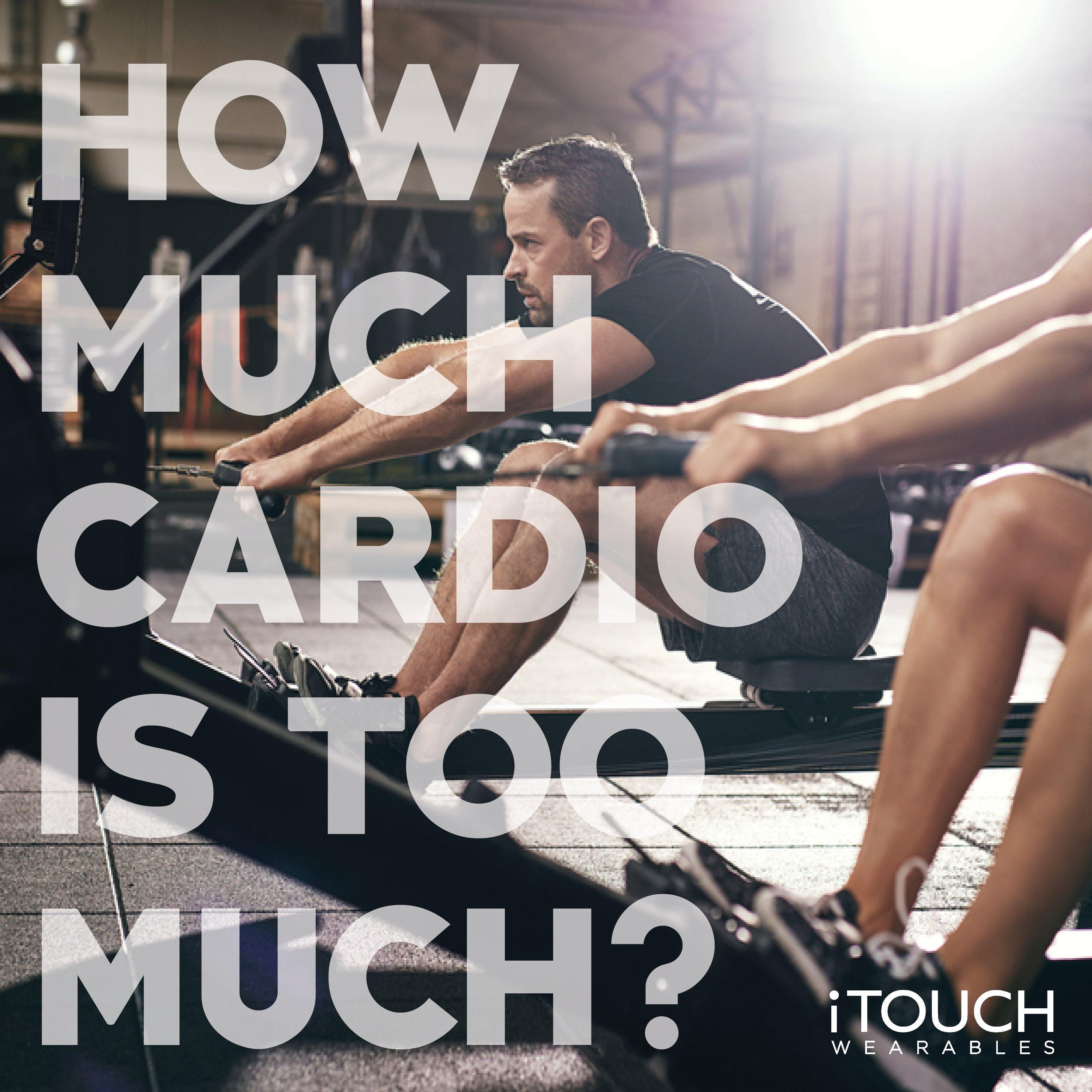
How Much Cardio is Too Much?
As we all know, when it comes to exercise, cardio is one of the most essential types of workouts for general health and fitness. The American Heart Association notes the benefits of aerobic exercise stating that is keeps your heart, lungs and circulatory system healthy, meaning that it helps to reduce your risk of developing a chronic disease like diabetes, heart disease and stroke. They state that everyone should aim to log at least 150 minutes (2.5 hours) of cardio every week. But what happens if you are a cardio fanatic? Does anything more cause any issues that need to be noted? And is it true that too much of anything can be bad for you? Can you do too much cardio? If you are curious about what happens when you do too much cardio, you have come to the right place! This is what happens to your body when you do too much cardio:
How Much Cardio Is Too Much?

Even with exercise, you can get too much of a good thing, meaning that cardio is unfortunately included. While most of us actually don’t get enough physical activity according to recent studies (only 22.9% of U.S. adults actually met physical activity guidelines between 2010–15), there are people who fall at the other end of the spectrum. These people actually are getting too much exercises, and are seen as being exercise-addicted. While it isn't always the case, these people can be those who regularly participate in endurance events such as marathons or triathlons.
According to Shawn Arent, PhD, certified strength and conditioning specialist, associate professor of kinesiology and director of the Center for Health and Human Performance at Rutgers,
“we tend to have this mindset where, if a little is good, more is better. And I’ve seen this over the years, especially working with athletes at the college and professional level, where the natural response when you start to see a performance drop-off is to train harder, when in fact it might be you’ve been working too hard for too long.”
These people do not understand the limits to which they are pushing themselves, and when they aren't seeing the results they want, the push even harder. There are, however, signs to look out for. But what exactly are those signs?
Signs You Are Doing Too Much Cardio

So, how do you know when you’re doing too much cardio? What are the effects of too much cardio? Well in all honesty, the answer will be different for every person. However with this said, in general, it’s when your body starts to break down. This means that your body can no longer recover from the exercise it endures. There are a few ways you can tell if you need to cut down on cardio. To start and before anything, you should track your workouts - meaning that you are writing down the type of workout you are doing, the duration of the workout, as well as the intensity. If you’re not doing this already, definitely get into the practice. Tracking makes it easier to notice if you’re no longer making progress, when a pace you normal can achieve suddenly feels challenging, or if you need more rest between workouts than usual.
It should be noted as well that if you’re constantly sick, sore or injured, or notice changes in sleep (an example being if you have a hard time getting to sleep and/or waking up), these can all be signs that your body could be telling you you’re doing too much cardio.
With this said, know that there will always be days when workouts feel harder than usual. You can notice that you feel extra sore from bumping up your mileage or intensity the day before - but don’t worry too much! The occasional “off” day happens and is okay. Instead, pay attention to trends. That is, do your “easy” days consistently feel harder than usual? Do you always feel sore and sluggish after a workout? That is when you might need to serious change your workout habits and routine.
How To Make A Change

If you suspect you’re overdoing it when comes to cardio, there are a few things you can do in looking for more signs. For starters, you can track your heart rate for added insight, which our iTouch Smartwatches and iTouch Fitness Trackers can help with. If you notice your resting heart (taken first thing in the morning before you get out of bed or begin to have breakfast) continues to increase over the course of four or five days, you need to either lower your intensity and duration of your cardio, or take a few rest days.
Overall, when it comes to cardio, how much cardio is too much depends on your training goal. For example, if you’re trying to gain muscle, doing a ton of aerobic exercise cuts into your ability to add mass and improve strength, because your body will be too busy recovering from the cardio to dedicate its resources for building muscle.
Finally, keep in mind that other life stressors such as work, family, and other relationships can impact how well you recover from exercise. So, if you’re having an unusually stressful week, an “average” amount of cardio could be too much for you in that moment. However, you may need to cut down on the mileage and/or intensity.


